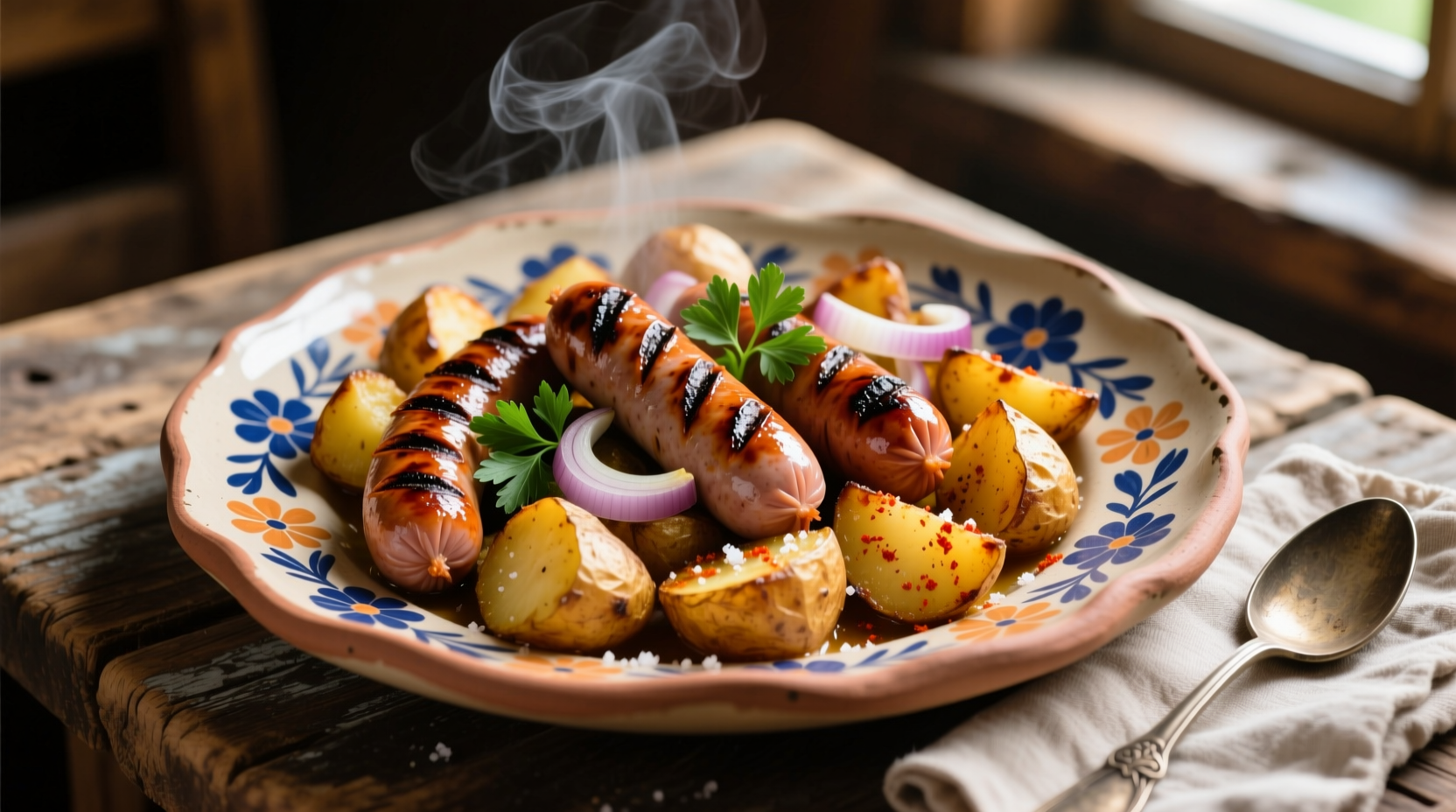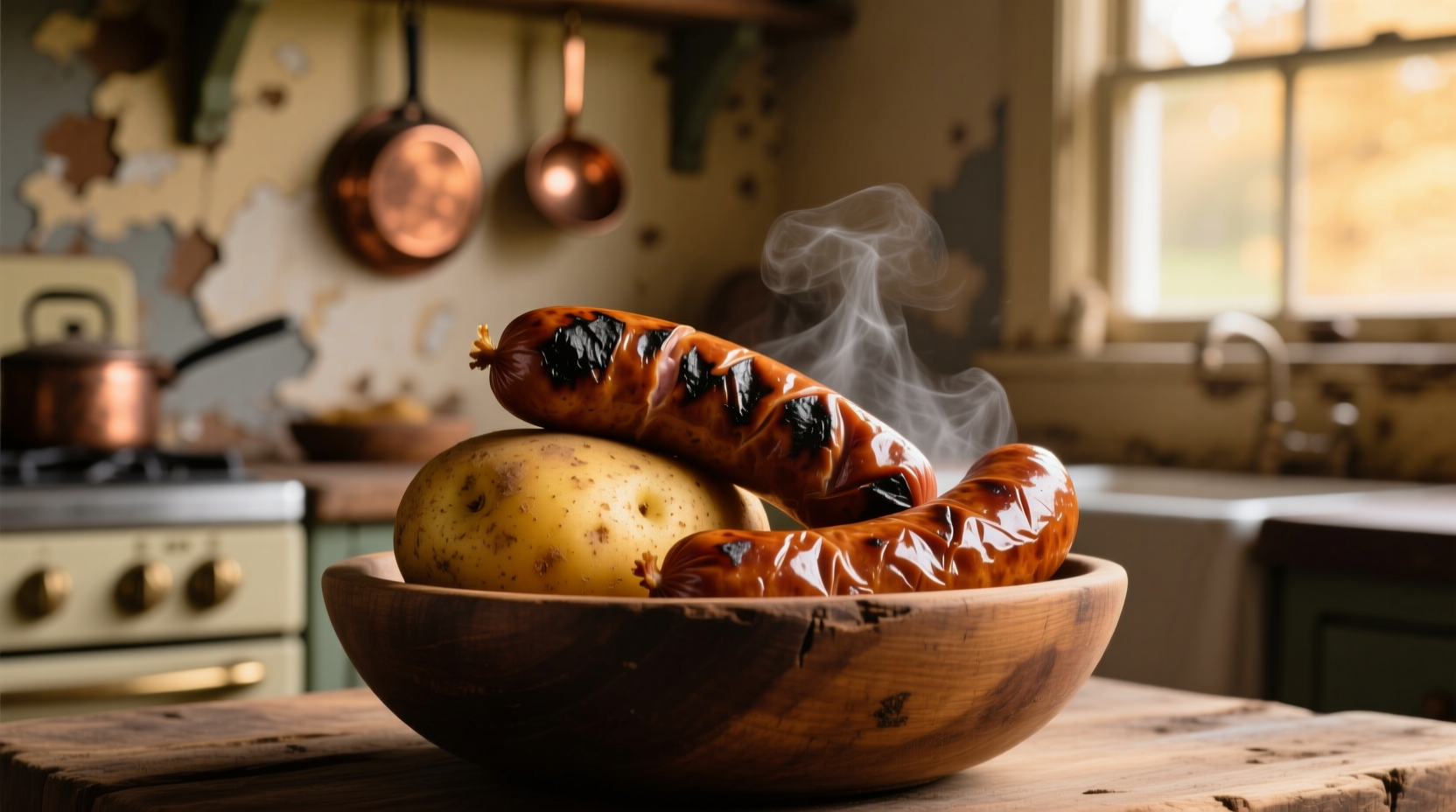As a culinary expert with decades of experience studying European flavor traditions, I've discovered that the magic of potato kielbasa combinations lies in their beautiful balance of textures and flavors. The earthy, comforting nature of potatoes perfectly complements the rich, smoky, and slightly spicy profile of quality kielbasa sausage. This pairing has sustained communities across Poland, Ukraine, and Germany for centuries—not just because it's delicious, but because it's nutritionally balanced and economically practical.
Why Potato and Kielbasa Belong Together
The chemistry behind this classic pairing reveals why it's stood the test of time. Potatoes provide a neutral, starchy base that absorbs the complex spices in kielbasa while adding satisfying texture contrast. According to food science research from the University of Warsaw's Department of Gastronomy, the umami compounds in smoked kielbasa interact with the glutamates naturally present in potatoes, creating a synergistic flavor enhancement that makes both ingredients taste more robust.
| Ingredient | Primary Flavor Compounds | Texture Contribution | Traditional Preparation |
|---|---|---|---|
| Kielbasa | Smoked phenols, garlic compounds, black pepper notes | Firm yet yielding, juicy | Smoked, grilled, or pan-fried |
| Potatoes | Natural sugars, glutamates, earthy notes | Creamy interior, crisp exterior when cooked properly | Boiled, roasted, or pan-fried |
Traditional Pairings That Stand the Test of Time
Across Central and Eastern Europe, specific accompaniments have evolved alongside potato and kielbasa preparations. These aren't arbitrary choices—they represent generations of culinary refinement.
Essential Vegetable Partners
- Sauerkraut: The tangy acidity cuts through the richness of kielbasa while complementing smoked flavors. Traditional Polish preparations often include caraway seeds in both the sauerkraut and kielbasa.
- Onions: Whether caramelized slowly or quickly sautéed, onions add sweetness that balances the saltiness of quality kielbasa.
- Bell peppers: Particularly in Hungarian-inspired dishes, roasted red and green peppers add color and subtle sweetness.
Flavor Enhancers That Make the Difference
The right finishing touches transform a simple potato kielbasa meal into something extraordinary:
- Mustard varieties: From sharp Dijon to sweet Bavarian styles, mustard provides the perfect acidic counterpoint
- Caraway seeds: This traditional pairing appears in both authentic kielbasa recipes and potato preparations across the region
- Fresh herbs: Dill, parsley, or chives added at the end provide brightness

Regional Variations Worth Exploring
Understanding the historical development of potato kielbasa dishes reveals why certain pairings work better in specific contexts. When potatoes arrived in Europe from the Americas in the 16th century, they gradually replaced turnips and other root vegetables in many traditional sausage preparations.
| Region | Signature Dish | Distinctive Pairings | When Best Served |
|---|---|---|---|
| Poland | Kiełbasa z ziemniakami | Sauerkraut, mustard, rye bread | Cold weather, holidays |
| Germany | Deftige Kartoffeln mit Wurst | Red cabbage, beer, pickles | Weekend meals, festivals |
| Ukraine | Kovbasa z kartoplyamy | Beetroot salad, garlic sauce | Family gatherings |
Practical Cooking Guidance for Perfect Results
Based on my experience teaching cooking techniques across Europe, here's how to achieve authentic potato kielbasa meals at home:
Step-by-Step Preparation Method
- Choose quality ingredients: Select smoked kielbasa with visible spice flecks and waxy potatoes like Yukon Gold
- Prepare potatoes properly: Boil until just tender, then finish in the pan with the sausage for crispy edges
- Cook kielbasa correctly: Slice and pan-fry until golden brown—don't boil as this removes flavor
- Combine strategically: Add potatoes to the sausage pan to absorb flavorful drippings
- Finish with traditional touches: A splash of vinegar or squeeze of lemon brightens heavy flavors
Avoiding Common Mistakes
Many home cooks make these critical errors when preparing potato kielbasa dishes:
- Overcooking potatoes: Results in mushy texture that can't stand up to hearty sausage
- Using sweet potatoes: While delicious, they create a different flavor profile not traditional to these dishes
- Skipping the resting period: Letting cooked sausage rest 5 minutes preserves juices
- Adding salt indiscriminately: Quality kielbasa is already well-seasoned
Dietary Adaptations Without Sacrificing Flavor
For those with specific dietary needs, these adjustments maintain authenticity while accommodating restrictions:
- Lower sodium: Rinse kielbasa before cooking and use low-sodium varieties
- Vegetarian option: Use smoked mushroom sausage with traditional potato preparation
- Gluten-free: Most traditional potato kielbasa dishes are naturally gluten-free
When Potato Kielbasa Pairings Work Best
Understanding context boundaries helps you serve these dishes appropriately:
- Seasonal considerations: These hearty meals shine in fall and winter but can feel heavy in summer
- Occasion appropriateness: Perfect for casual family dinners but may need refinement for formal occasions
- Cultural context: In Poland, this combination represents comfort food; in other regions, it may be considered ethnic cuisine











 浙公网安备
33010002000092号
浙公网安备
33010002000092号 浙B2-20120091-4
浙B2-20120091-4